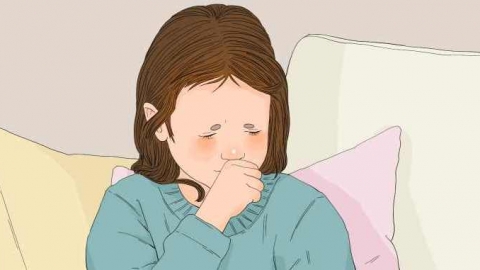What to do if a 3-year-old child has a fever
Generally, fever in a 3-year-old child may be caused by vigorous activity, a hot and stuffy environment, common cold, herpangina, acute bronchitis, or other reasons. Parents can choose methods such as daily care or medication to help improve the situation. The specific explanations are as follows:
1. Vigorous Activity
Children are usually active and playful. After intense running or jumping, heat production in the body increases, and temporary imbalance in body temperature regulation may cause a brief fever. Let the child stop activity, rest in a cool place, and drink some warm water appropriately. Retake the body temperature after 10–15 minutes; it usually returns to normal by itself.
2. Hot and Stuffy Environment
Being in a closed, high-temperature environment hinders body heat dissipation, causing heat accumulation in the body, which may lead to fever. Promptly open windows for ventilation or turn on a fan to lower the indoor temperature to 20–25°C, and reduce the child's clothing to help dissipate heat.

3. Common Cold
A viral infection causes inflammation of the upper respiratory mucosa. The immune system activates its defenses, and the body's temperature-regulating center raises the body temperature, resulting in fever. If the body temperature exceeds 38.5°C, medications such as paracetamol oral solution, infant Ganmaoning Syrup, or Xia'er Jiegan Granules may be used under a doctor's guidance. Maintain a light diet and encourage the child to drink plenty of warm water.
4. Herpangina
Coxsackievirus infection causes the virus to irritate the throat mucosa, triggering inflammation and releasing pyrogenic substances that lead to fever. When fever occurs, follow medical advice to use medications such as ibuprofen suspension, Kehoujian Spray, or Pudilan Xiaoyan Oral Liquid. Avoid giving the child spicy or hot foods; instead, provide cool liquid or semi-liquid foods.
5. Acute Bronchitis
Bacterial or viral infection causes inflammation of the bronchi. Inflammatory secretions irritate the airways, inducing fever, often accompanied by coughing. Under a doctor's guidance, use medications such as Xia'er Huatan止Cough Granules, Cefaclor Dry Suspension, or Xia'er Feire Kechuan Oral Liquid. Maintain humid indoor air and avoid exposure to smoke or dust.
In daily life, dress the child according to the weather conditions; ensure a balanced diet to enhance immunity; closely monitor the child's mental state during fever. If high fever persists or difficulty breathing occurs, seek medical attention promptly.




